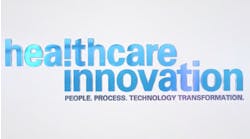Information governance is becoming a more recognized initiative in healthcare and adoption of information governance practices is on the rise, according to a new survey published by the American Health Information Management Association (AHIMA).
The 2017 information governance survey shows results from more than 1,500 healthcare professionals from across the country.
In the survey, 53 percent of respondents said they have information governance practices in place or recognize the need for information governance. Additionally, 14 percent of respondents have initiated an organization-wide information governance program, and 18 percent have governance-related projects underway. Organizations with information governance practices are gaining a competitive edge by using information as a strategic asset for better decision making, risk reduction, cost avoidance and streamlined operations. They are also implementing their programs using varying levels of resources, tools and expertise available to them in order to move their information governance initiatives forward.
“Our goal with this survey was to collect details on successes, obstacles and opportunities from healthcare professionals who are utilizing information governance programs,” AHIMA interim CEO Pamela Lane said. “We are thrilled that 85 percent of respondents are familiar with information governance and 74 percent are familiar with AHIMA’s definition of it. Our analysis shows that we have made progress in this arena and will continue to offer services for even more growth.”
In addition to results and key findings, the survey includes recommendations for healthcare professionals who are looking to implement an information governance program. Those recommendations include:
Gain executive support: Make a case for information governance that can demonstrate how governance can help meet your organization’s goals and address its challenges
Assemble a multidisciplinary group of stakeholders: Group members will be responsible for planning, measuring, reevaluating and leading the information governance charge
Develop an information governance roadmap: Set realistic expectations and goals that will improve your organization’s business and clinical processes. Aim for the highest return on investment.
Another key finding in the 2017 survey suggests data governance is the top priority for respondents in terms of funding an information governance program. Beginning with data governance will allow organizations to build a strong foundation in preparation for a robust information governance program.
“It is important for organizations to remember information governance is not a project; it is an ongoing program and a continuous, repeated practice,” Lane said in a statement.

